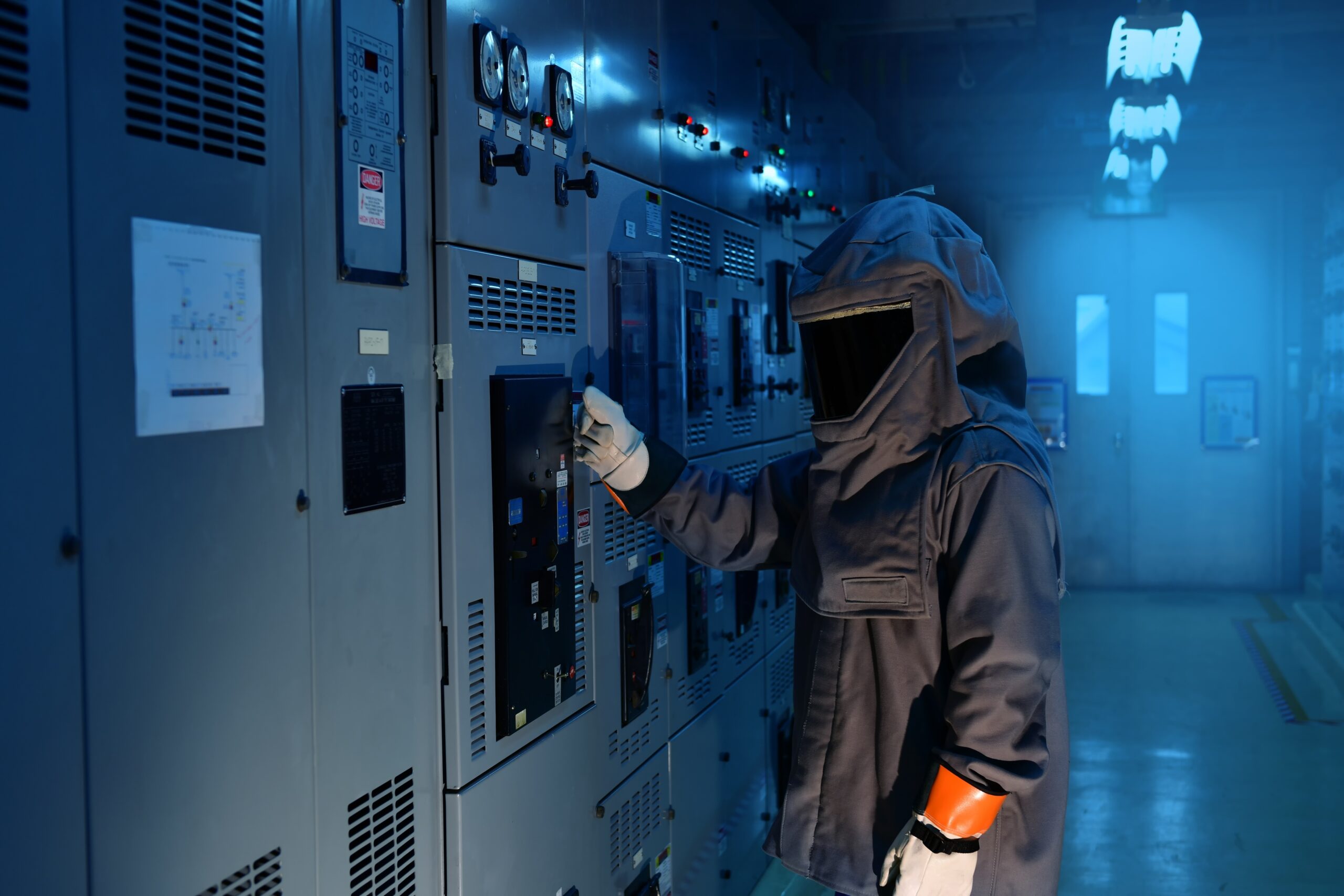Any facility with electrical systems—whether new construction or existing infrastructure—requires an arc flash study. It’s not a new concept, but as industrial operations become more automated and electrically complex, the importance of getting it right has never been greater. Modern arc flash studies aren’t just about compliance—they’re about ensuring safety, system reliability, and informed decision-making across your facility.
Among electrical hazards, arc flashes remain one of the most dangerous risks — capable of causing severe injuries, extensive equipment damage, and costly operational downtime.
Arc flash studies form the cornerstone of managing these risks effectively. At AED, we view them as much more than regulatory checkboxes — they’re critical tools that protect people, infrastructure, and business continuity.
What Is an Arc Flash and Why Conduct a Study?
An arc flash is a sudden electrical explosion that occurs when an electric current arcs through air between conductors or from a conductor to ground. This event releases an intense burst of heat, light, and pressure.
The consequences can be devastating:
- Severe burns
- Blindness
- Fatal injuries
- Equipment destruction
- Extended downtime
An arc flash study is a detailed engineering analysis designed to identify and quantify these hazards. Using specialized software like SKM Power*Tools or SIL hazard analysis programs, the study:
- Pinpoints locations and potential severity of arc flash events in your electrical system
- Calculates incident energy (thermal energy exposure) at critical points
- Determines the required Personal Protective Equipment (PPE) levels
- Defines safe working boundaries and safe procedures to minimize risk
Why Arc Flash Studies Matter for Your Facility
Worker Safety is the Priority
Arc flash studies deliver precise hazard assessments, empowering your workforce with knowledge of exactly how to protect themselves. Knowing the right PPE to wear and the safe work practices to follow reduces injury risk significantly.
Regulatory Compliance Made Practical
Our engineers ensure your studies comply with key standards like NFPA 70E and OSHA. Staying compliant helps you avoid costly fines and insurance complications while demonstrating commitment to workplace safety.
Minimize Equipment Damage and Downtime
Arc flash incidents can destroy switchgear, control panels, and vital electrical assets. Accurate studies inform protection schemes that limit fault duration and energy release — preserving equipment and reducing costly outages.
Proactive Risk Management and Operational Excellence
Beyond meeting minimum regulations, our team integrates arc flash hazard analysis early in electrical system design, upgrades, and maintenance planning. Using advanced design tools such as AutoCAD 3D and Bluebeam, we coordinate seamlessly with project teams to embed safety into every phase.
When Should You Update or Conduct an Arc Flash Study?
You should initiate or update arc flash studies in the following situations:
- Installation of new electrical systems
- Major modifications, upgrades, or changes to protective devices
- At least every 3 to 5 years, as industry standards recommend
- When equipment operates at or above 50 volts
AED’s Comprehensive Arc Flash Study Process
Our proven process includes:
- Field Survey: Detailed data collection on electrical equipment, wiring, and protective devices
- Short Circuit and Coordination Studies: Advanced software analyzes fault currents and sequences protective device operation
- Incident Energy Analysis: Thermal energy exposure levels are calculated throughout your electrical system
- Labeling and Documentation: We provide clear, compliant warning labels and detailed reports for operations and safety teams
- Collaboration and Integration: We work across engineering, construction, and operations teams to embed safety into every stage of the project
Beyond the Study: Embedding Arc Flash Safety into Your Operations
At AED, arc flash studies are living documents, integrated into ongoing operations through:
- Maintenance strategies and safety training programs
- Control system upgrades and automation improvements
- Continuous hazard analysis including SIL and process hazard assessments
- Construction support and quality assurance
Our E&I engineers combine technical rigor with practical field experience, ensuring your systems operate safely and reliably in today’s demanding industrial environments.
The Bottom Line
Arc flash studies are far more than regulatory necessities — they’re essential components of operational resilience, safety culture, and asset protection.
At AED, we leverage cutting-edge tools, deep industry knowledge, and a collaborative approach to help you build safer, smarter electrical systems.
Because great facilities don’t just meet safety standards — they set them.

